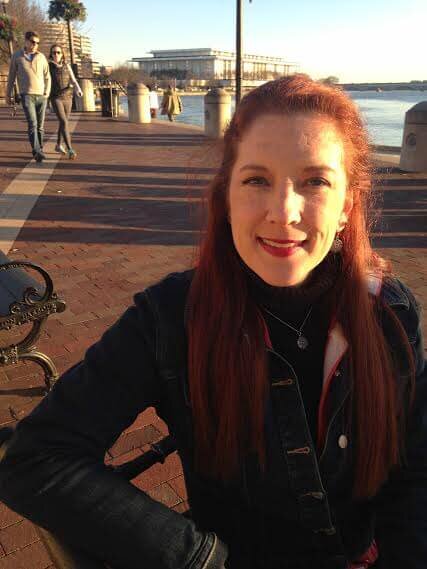
This post started as a letter from an appreciative reader; at our request, Alison – who was born Christian and became Muslim about nine years ago – expanded on her thoughts, sharing some ideas about why modesty works for her and her faith. As always, we thank you in advance for your supportive thoughts and constructive contributions to conversation surrounding this topic. – GN Staff
I was so happy to chance upon Mayim’s articles about modesty and how she navigates today’s society as a religious person, and was beyond thrilled when I discovered GrokNation. I love that the site addresses both fun and serious topics in an intelligent, inclusive way, showing that you can discuss just about anything with integrity.
I chose a more modest way of life about 9 years ago when I became Muslim, and even since I was a teen, I’ve felt a dissonance with some habits of ‘mainstream’ society – I don’t drink or go to bars, and I dress modestly unless I am around just women or my husband. This makes me, like Mayim, another rebel in the fight for modest fashion.
With my Christian upbringing and deep understanding of the three Abrahamic religions, I am a great believer in interfaith unity. I wish more people understood how much Judaism, Islam, and Christianity have in common, especially since they recognize the same line of ancient prophets, as well as the Old Testament/Torah, which contains much wisdom on this and other issues.
Modesty in dress and behavior is an important universal value that has sadly been lost in the last century. That is why I am so glad that there are Muslims, Orthodox Jews, religious Christians, and others who still strive to achieve this ideal.
Some religious choices like avoiding alcohol and dressing modestly are quite bizarre practices to many Americans. If only women and girls, and the males in their lives, could understand that modest dress is empowering and demonstrates self-respect – it’s not going to solve all of society’s problems, but greater attention to modesty could certainly start to generate some improvements.
For example, if modesty were perceived as a more preferable trait in American society, girls and women might feel less pressured to meet unrealistic physical standards that dominate popular culture today. And as a positive side effect, this could lead to more respect for physical space among males and females. I have seen this in some traditional cultures, where modesty is more appreciated by both men and women than it is here in the United States.
The result can be that personal space is better respected in many cases, as is the expectation that a woman will give the signal if or when she wants to be hugged or receive attention from a man. In saying this, I don’t intend to denigrate any woman’s choices in dress, modest or not, and I don’t suggest that this generalization can be made across the board. There is obviously harassment of women in all cultures, regardless how a woman is dressed.
I have also found that modesty for God’s sake influences my daily interactions with people. It reminds me to be more humble and pull back when I find myself getting too angry or worked up about something, and helps me remember that I am no better or worse than anyone else. I try to convey those ideas to my children, as well.
Critics find this kind of dress “oppressive,” yet those of us who dress modestly only feel oppressed by those who don’t understand – and make no effort to understand – our fashion choices. American society expects women to bare more, not less, and if you bare less, you are considered strange.
I don’t cover my hair, but I cover my arms and cleavage and wear longer shirts, and my bathing suits go to my elbow and mid-calf. For a period, I actually hoped to cover my hair, but didn’t feel courageous enough to endure all the criticisms I knew I would face.
Like Mayim, I became more conservative as an adult, so friends and family who were used to seeing me in shorts and tank tops were confused, especially in hot weather. After explaining to my family once or twice that I preferred to cover up for religious reasons, they adjusted to my choices, but I am still quite aware of this social dynamic.
“Oh, sweetie, don’t you feel hot in that?” asked a parent at my children’s swim meet one humid summer afternoon. I had never seen or spoken to this woman before in my life, yet she felt free to comment on my choice of long sleeves and ankle-length skirt. And for several years, I kept getting questions from my children, who didn’t understand why I now avoided “summer clothes.” I continued to explain that I don’t need to show all my body in public, and that covering myself is a way to become both closer to God and respect myself.
I’ll never forget my first visit to Morocco six years ago, when I saw women who were beautifully and modestly dressed in fashionably draped scarves and looser skirts and pants. I realized then that modesty is possible. I enjoyed the ease of feeling physically comfortable in anyone’s company, and being able to pray any time of day because I was already dressed for it.
I have adjusted over the years in my choice of modest dress. I’ve eased up from wearing oversized shirts and heavy scarves to cover my neck, and now just dress comfortably in clothes that cover my skin, drape over certain areas, and aren’t too tight. I feel proud of my choice to be modest, and while I still have far to go in my own faith journey, I am happy that I have made permanent changes in my life that bring me closer to that goal.
I feel an affinity with women of all faiths who have created a space for where they are true to themselves and to God, and who carry themselves modestly in daily life. With this in mind, I very much admire the place Mayim has created for herself in Hollywood and also in her own community. Balancing faith and modesty in today’s world is a juggling act, for sure. I very much look forward to future conversations about this and many other important topics on GrokNation. May God bring peace to all.
Alison Lake Benadada is a writer and editor in Washington, D.C.


Grok Nation Comment Policy
We welcome thoughtful, grokky comments—keep your negativity and spam to yourself. Please read our Comment Policy before commenting.